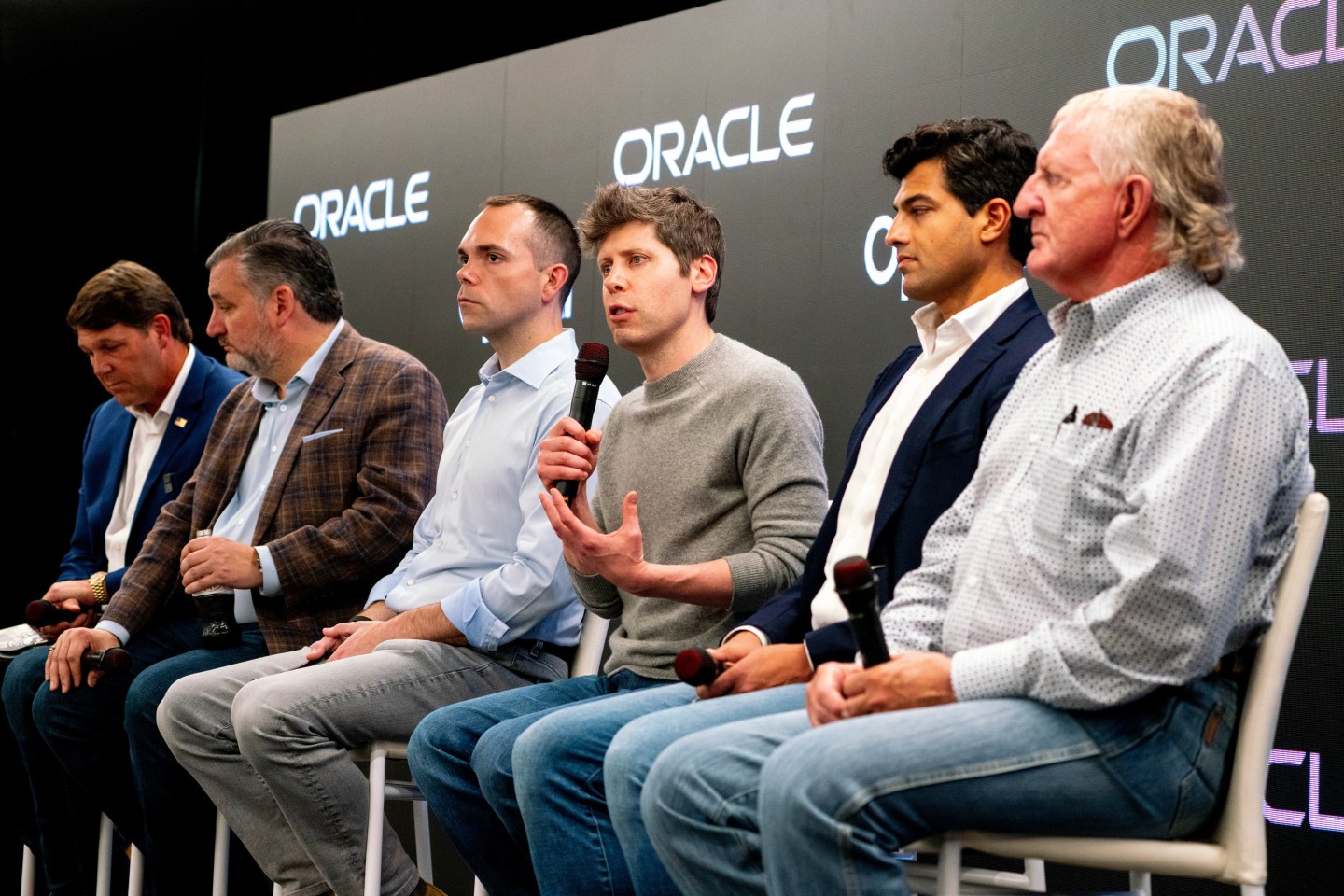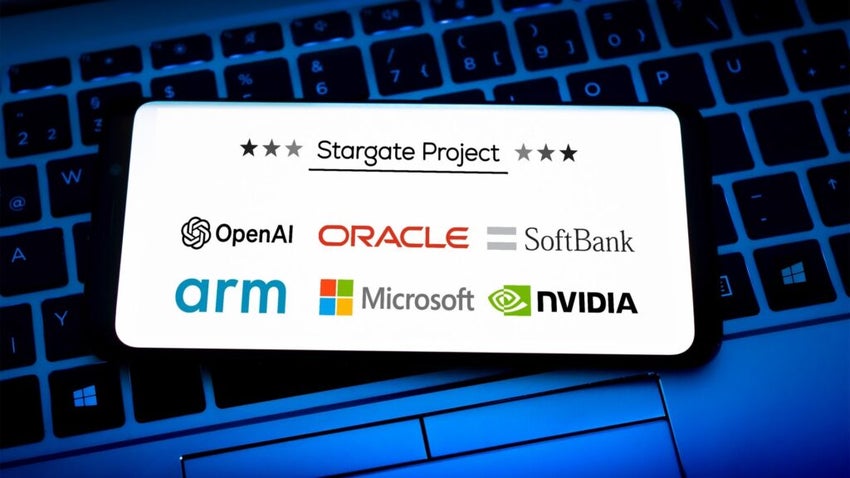When tech titans OpenAI, Nvidia, and Oracle announced their $500 billion “Stargate” AI infrastructure project in January 2025, the press release framed it as a monumental achievement for American technological supremacy. President Trump called it “the biggest AI infrastructure project by far in history.” But behind the patriotic rhetoric lies something far more concerning: what antitrust experts are calling a potential violation of 135 years of competition law.
This isn’t just another corporate partnership, it’s a vertically integrated monopoly spanning AI infrastructure’s most critical layers: GPUs (Nvidia’s 80-95% market dominance), cloud services (Oracle), and foundational AI models (OpenAI). While pitched as necessary for U.S. competitiveness, Stargate represents the kind of market consolidation that antitrust laws were specifically designed to prevent.
The Anatomy of an AI Cartel
Stargate’s sheer scale defies comprehension. The project encompasses seven gigawatts of power capacity, enough to power half the households in Georgia, and includes massive data centers across Texas, New Mexico, Michigan, and Ohio. To put this in perspective, the $500 billion investment is roughly twice the combined cost of King Abdullah Economic City in Saudi Arabia and the International Space Station.
The consortium includes not just the headline trio but extends to Microsoft, Arm, SoftBank, and Abu Dhabi’s MGX investment group. According to Fortune’s reporting, the structure pools resources where these companies would normally be fierce competitors:
- Nvidia supplies GPUs while also developing its own AI cloud services
- Oracle provides cloud infrastructure while pursuing AI chip development
- OpenAI both consumes infrastructure and competes in the model market
- Microsoft acts as a “key technology partner” while being OpenAI’s biggest investor
Madhavi Singh, a Yale Law School researcher and deputy director of Yale’s Thurman Arnold Project, puts it bluntly: “The latest and most flagrant example of the government’s enabling private sector companies to expand and entrench their power under the guise of protecting American tech supremacy was the launch of Project Stargate.”
The Legal Time Bomb: Clayton and Sherman Acts
The Stargate arrangement raises red flags under both foundational U.S. antitrust statutes. The Clayton Act allows courts to block joint ventures that show probable harm to future competition, it doesn’t require evidence of current damage. The Sherman Act prohibits agreements that “unreasonably restrain trade” by reducing independent decision-makers in a market.
Singh’s analysis, scheduled for publication in the Berkeley Technology Law Journal, argues Stargate violates both laws by reducing the number of independent players in an already concentrated market. Three cloud providers (Amazon, Google, Microsoft) dominate 70% of cloud services, while Nvidia controls 80-95% of GPUs.
Stargate’s particular danger lies in eliminating what antitrust experts call “maverick” firms, disruptive players who keep larger competitors honest. Oracle has historically pressured hyperscalers through lower pricing and flat-fee structures. Under Stargate, Singh warns, “Oracle may adopt Microsoft’s pricing strategy. That would raise prices and lower options for customers.”
The Competition Squeeze Play

Perhaps most troubling is how Stargate could dismantle natural competitive pressures. As Singh explains, before Stargate, “Arm, Nvidia, and Microsoft separately decide what types of chips they produce [or design]. The Sherman Act prohibits activity that deprives the market of independent centers of decision-making and therefore the diversity of economic interests. This is precisely what Stargate does.”
This creates what antitrust experts call “cartelization” incentives. Instead of Microsoft, Google, and Amazon developing their own custom GPU and CPU offerings to challenge Nvidia and Arm, as they’re currently doing, Stargate members might decide it’s more profitable to coordinate. As Singh told Fortune: “The idea is, ‘I’ll take the monopoly in one kind of chips, and you take the monopoly in IP for those or another kind of chips.'”
The implications extend beyond just pricing. Innovation suffers when companies stop competing. The Federal Trade Commission blocked Nvidia’s proposed acquisition of Arm in 2021 precisely because, even though they made different types of chips, their union would erase potential competition. Stargate creates similar risks on a much larger scale.
The Regulatory Blind Spot
Perhaps most astonishing is the lack of regulatory scrutiny. At a Senate Commerce Committee hearing titled “Winning the AI Race” last May, Altman and Senator Ted Cruz effusively praised Stargate without a single senator questioning its legality. The word “antitrust” doesn’t appear once in the three-and-a-half hour transcript.
Elon Musk’s criticism focused on funding questions rather than competition concerns, joking that Altman and associates were “freebasing to come up with their $500 billion number.” But as Singh notes, the real issue is whether this consolidation serves public interests or merely corporate ones.
The federal government’s hands-off approach reflects a broader shift toward treating AI giants as “national champions” in the U.S.-China tech competition. But this rationale dangerously overlooks how monopolistic practices historically undermine innovation and consumer welfare.
The Industry’s Silent Protest
Interestingly, the most substantive antitrust critique has come from academic corners rather than industry players. Major tech competitors have remained conspicuously quiet, perhaps recognizing their own complex relationships with Stargate members or fearing regulatory retaliation.
As one Reddit commenter noted: “Google has all that and more as a single company.” This perspective highlights the uncomfortable reality that vertical integration within single companies faces less scrutiny than coordination between separate entities, even when the competitive effects might be similar.
Another commenter pointed out the fundamental economic challenge: “OpenAI can never recover its investment. Once they go public and accounting books become public – and the reality of no ROI dawn upon investors – an economic calamity will come upon us.”
What Comes Next: Regulatory Reckoning or Corporate Capture?

The Stargate alliance represents a fundamental test for 21st-century antitrust enforcement. Can century-old competition laws adapt to prevent AI infrastructure monopolization? Or will “national security” and “competitiveness” arguments prevail over consumer protection?
For business leaders and investors, several critical implications emerge:
- Market Concentration Risk: Stargate indicates fewer players controlling key AI inputs. Monitor how this affects pricing and innovation in your AI initiatives.
- Regulatory Developments: Antitrust enforcement may tighten as academic criticism grows. The political winds could shift quickly.
- Competitive Responses: Watch whether Microsoft, Amazon, and Google accelerate their own custom chip development to break Nvidia’s dominance outside the consortium.
- Geopolitical Dimensions: National security framing might shield Stargate from U.S. regulators while raising international tensions affecting global supply chains.
The ultimate question remains whether Stargate represents genuine infrastructure advancement or sophisticated market division. As Singh warns, “All of these tech markets seem initially competitive. But it takes a bit of time for anticompetitive barriers to get erected.”
The AI industry stands at a crossroads. We can have open competition that drives innovation and lowers costs, or we can have cartel-like arrangements that deliver short-term national advantage at the expense of long-term competitive dynamism. Stargate suggests we’re choosing the latter, and the consequences could reshape technology markets for generations.




